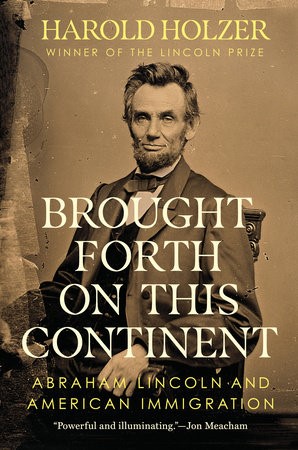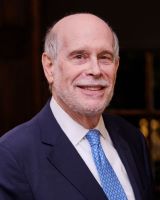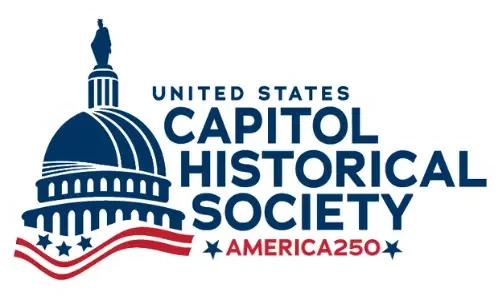Register Here!
 Join us for an exciting webinar with Lincoln expert, Harold Holzer, as he discusses his book, Brought Forth on This Continent, focused on President Lincoln and his stance on immigration.
Join us for an exciting webinar with Lincoln expert, Harold Holzer, as he discusses his book, Brought Forth on This Continent, focused on President Lincoln and his stance on immigration.
In the three decades before the Civil War, some ten million foreign-born people settled in the United States, forever altering the nation’s demographics, culture, and—perhaps most significantly—voting patterns. America’s newest residents fueled the national economy, but they also wrought enormous changes in the political landscape and exposed an ugly, at times violent, vein of nativist bigotry.
Abraham Lincoln’s rise ran parallel to this turmoil; even Lincoln himself did not always rise above it. Tensions over immigration would split and ultimately destroy Lincoln’s Whig Party years before the Civil War. Yet the war made clear just how important immigrants were, and how interwoven they had become in American society.
Harold Holzer, winner of the Lincoln Prize, charts Lincoln’s political career through the lens of immigration, from his role as a member of an increasingly nativist political party to his evolution into an immigration champion, a progression that would come at the same time as he refined his views on abolition and Black citizenship. An utterly captivating and illuminating work, Brought Forth on This Continent assesses Lincoln’s life and legacy in a wholly original way, unveiling remarkable similarities between the nineteenth century and the twenty-first.
Like all USCHS programs, this webinar is free and open to the public; registration is required.
Speaker Bio:
 Harold Holzer is the recipient of the 2015 Gilder-Lehrman Lincoln Prize. One of the country’s leading authorities on Abraham Lincoln and the political culture of the Civil War era, Holzer was appointed chairman of the US Abraham Lincoln Bicentennial Commission by President Bill Clinton and awarded the National Humanities Medal by President George W. Bush. He currently serves as the director of the Roosevelt House Public Policy Institute at Hunter College, City University of New York.
Harold Holzer is the recipient of the 2015 Gilder-Lehrman Lincoln Prize. One of the country’s leading authorities on Abraham Lincoln and the political culture of the Civil War era, Holzer was appointed chairman of the US Abraham Lincoln Bicentennial Commission by President Bill Clinton and awarded the National Humanities Medal by President George W. Bush. He currently serves as the director of the Roosevelt House Public Policy Institute at Hunter College, City University of New York.








